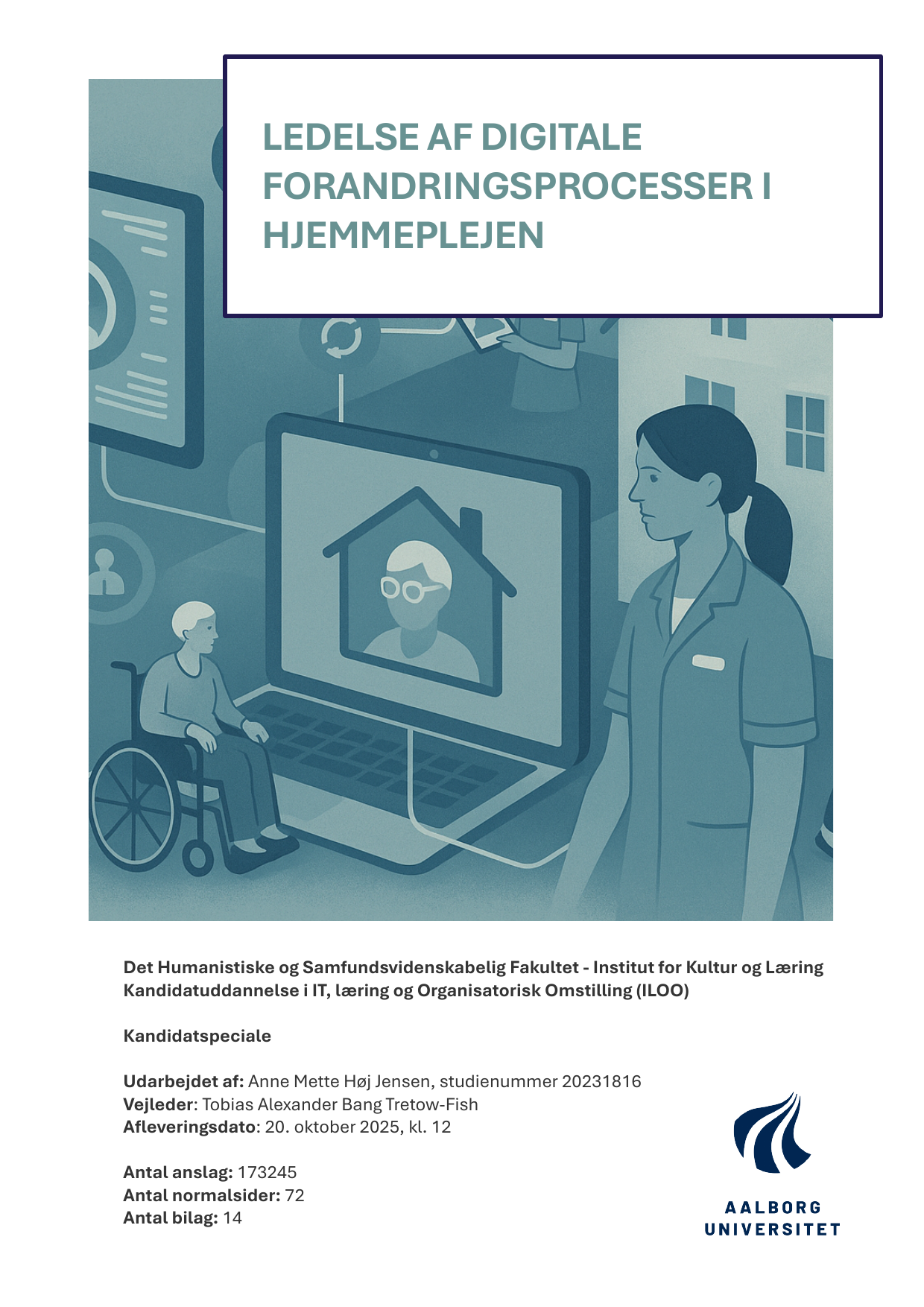
Ledelse af digitale forandringprocesser i hjemmeplejen
Oversat titel
Leadership of digital transformation processes in home care
Forfatter
Semester
4. semester
Udgivelsesår
2025
Afleveret
2025-10-20
Antal sider
72
Abstract
This thesis explores how home care nurses’ experiences with video consultations can inform the development of leadership strategies that support the implementation of digital technologies in municipal health care. The empirical foundation stems from a collaboration with Viborg Municipality, where a leadership-driven initiative aimed to “boost” nurses’ use of video consultations within home nursing services. The purpose is to examine how leadership can facilitate the anchoring of digital solutions in a context characterized by operational management, organizational complexity, and diverse professional logics. The study adopts a pragmatic philosophical stance inspired by John Dewey and applies a mixed methods design, combining quantitative survey data and qualitative interviews. The analysis is framed by the Technology Acceptance Model 3 (TAM3) and Weick’s theory of sensemaking. Findings indicate that nurses generally perceive the technology VitaComm as user-friendly but of limited usefulness in nursing tasks that require physical presence. Barriers include technological stress, insufficient technical support, and unclear work processes. Moreover, the analysis highlights the pivotal role of leadership as a sensegiver in creating shared understanding, ownership, and continuous learning throughout the implementation process. The thesis concludes that effective leadership strategies for digital transformation in home care must integrate technological competence development, organizational clarity, and active sensemaking. This implies that leaders must engage in experimental, communicative, and practice-near approaches to support employees’ learning, reflection, and adaptation within digitally transformed work environments. Keywords: digital leadership, video consultations, home care, nurses, TAM3, sensemaking, pragmatism, technostress, mixed methods.
